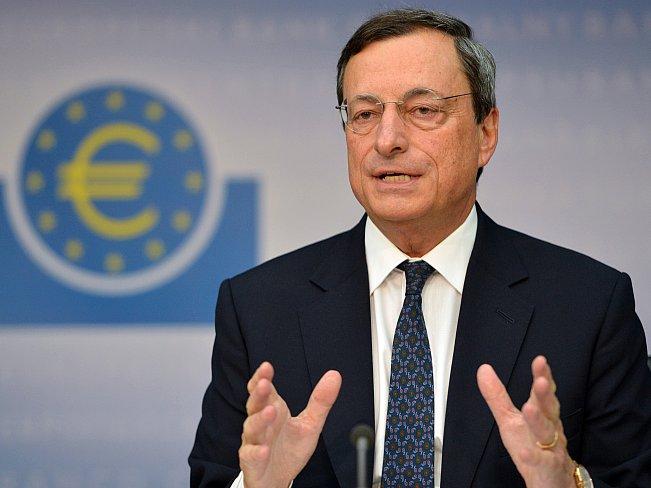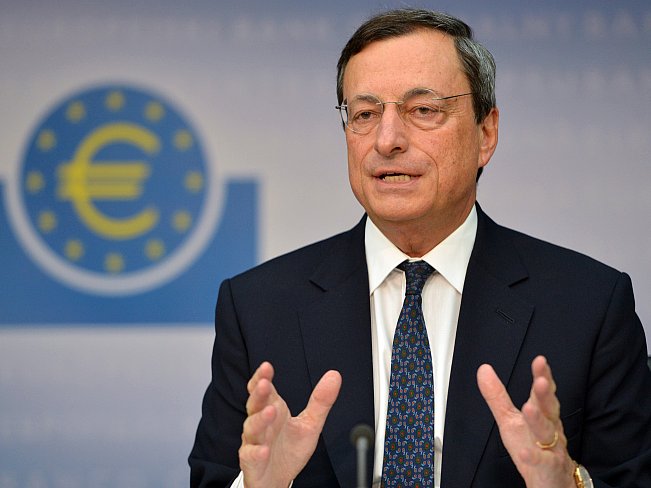EUROPEAN MARKET INSIGHT
Last week’s trading was all about the European Central Bank (ECB).
At ECB’s meeting last Thursday, President Draghi did not disappoint markets and launched the Outright Monetary Transactions (OMT) program to buy bonds of troubled eurozone members.
In a globalized world of central bank intervention, it is OK if the Fed disappoints, but the ECB delivers. Consequently, markets cheered at the announcement and a global rally ensued—the EURO STOXX 50 was up 4 percent, Spanish stocks were up 6.2 percent, but the European banking sector by far was the outperformer, rising 9.4 percent. After surviving a Greek restructuring earlier this year, banks are still laden with Spanish and Italian bonds and have comparatively little equity to show for, given the size of their balance sheets.
By reducing the probability of default of Italy and Spain, the ECB effectively reduces the risk of loss for European banks. Given the interconnectedness of the global financial system, American banks also profit from a risk reduction of their counterparties in the eurozone, which is why the KBW bank index of U.S. banks rallied 4.4 percent.
The euro currency was also up by 1.8 percent to $1.28, which is peculiar, given that monetary debasement usually weakens the currency. In this case, a large amount of short sellers probably had to cover on the verge of any positive news for the eurozone and this piece of news certainly decreases the breakup risk for the time being.
OMT Comes With Several Catches
While the markets looked at the headline “unlimited purchases” and celebrated a European round of quantitative easing (QE), this new exercise by the ECB once again shows why Europe is not America.
First of all, the new program is not a QE-equivalent. As directed by its mandate, the ECB cannot monetize government bonds directly; it always has to take a shortcut. This was demonstrated by the previous long-term refinancing operations, where the ECB did not buy bonds from banks, but banks had to enter into repurchase agreements with the obligation of buying them back in three years time.
This time is no different, as the new purchases will be fully “sterilized.” This means that for each Spanish or Italian bond—since Greece, Ireland, and Portugal are already under a bailout program, the OMT is really geared toward those two countries—the ECB buys, it will have to sell another bond of the same value, probably issued by Germany, France, Austria, the Netherlands, or Finland and the size of its balance sheet stays the same, whereas it would expand under a QE program.
In fact, the new program is not much—if at all—different from the previous Securities Market Program (SMP), which saw the bank buy 250 billion euros ($320 billion) in bonds of the peripheral nations over two years, sterilizing the purchases by selling other bonds. In fact the SMP was also unlimited, although this was not emphasized. It could also buy bonds of all maturities, whereas the OMT program can only buy bonds of shorter maturities up to three years, because according to Draghi this reduces the debt monetization effect.
In fact, according to the liquidity theory of money, it actually increases this effect and the devaluation of the euro, with the bill being footed by Germany and other creditor nations in the form of inflation. It is true that shorter-term bonds are generally more liquid than longer-term bonds. When determining liquidity, however, one cannot just look at maturities. One also has to look at quality.
Quality German bonds regardless of duration will always be more liquid than lower quality Spanish or Italian bonds except the very short-term bills that mature in less than a year. A case in point is Greece, where the quality of its bonds and bills is so bad that there is no bid in the market, hence no liquidity for even the shortest of maturities. Ultimately, it is the liquidity of the balance sheet of the central bank that determines the value of the money it issues. By taking on board more illiquid, low quality assets and selling liquid and high quality assets, the ECB is debasing the euro.
Conditionality One Big Difference
The only difference between the SMP and the OMT is that the OMT will be conditional.
The ECB used to prop up Spanish and Italian bonds through the SMP without the respective governments being obliged to do anything to reform their economies. It will be different this time, as the ECB will only launch the purchases if a government successfully applies for a bailout, which includes several guidelines for reform under supervision of the European Union, the ECB, and International Monetary Fund (IMF).
Curiously enough, this paper tiger of potentially unlimited ECB buying has already reduced funding costs for the countries that should apply for a bailout, namely Italy and Spain. Given these reduced funding costs, those countries’ politicians have actually now voiced opposition to accepting a bailout according to several press reports, as giving up sovereignty would decrease their chances of re-election and lower funding costs gives them some time to delay.
No Subordination Under New Program
Another important difference is the intention of the ECB to receive the same pari passu (on equal footing) treatment in case of a debt restructuring.
With Greece, that wasn’t the case and the ECB still sits on billions of Greek bonds valued at par as the central bank expects repayment in full. Private creditors had to tender their bonds in a debt restructuring this March and took net present value losses of more than 70 percent.
Investors expecting the same fate in the case of a restructuring of Italian and Spanish debt therefore kept selling bonds after learning that the ECB had bought with the SMP program, rendering the exercise counterproductive. In this particular case, the program might offer the only genuine advantage, as investors will not be concerned and might keep buying the bonds that the ECB is buying. Even in this case, further complications can be expected, as bonds previously purchased under the SMP program will retain their senior status.
The Week Ahead
While last week was important with respect to central bank action, this week will see more politics and an important court ruling.
The Dutch general election is taking place on Sept. 12 and will likely see the formation of a coalition of center-right parties that all agree on preserving the euro under the helm of the current Prime Minister Mark Rutte, despite its high cost for the Netherlands. A recent poll suggests that as many as 40 percent of voters are still undecided and this at least holds the potential for a big surprise.
The man who could deliver this surprise is Geert Wilders of the Freedom Party, who is running under a platform that would see the Netherlands exit the EU and the euro. According to Wilders, EU directives infringe upon the national sovereignty of the Netherlands and the country has to shoulder a disproportionately high cost to preserve the common currency.
Elsewhere, other EU facilities also face scrutiny and the German constitutional court could deal the European stability mechanism (ESM) a fatal blow on Sept. 12. The fund was set up to support ailing countries in primary markets and take over from the temporary European Financial Stability Facility (EFSF). Being funded primarily by Germany, many citizens launched lawsuits against the program on the grounds that it violates budgetary sovereignty and the constitutional court will decide Wednesday whether the ESM indeed violates the German Constitution.
The Epoch Times publishes in 35 countries and in 19 languages. Subscribe to our e-newsletter.







